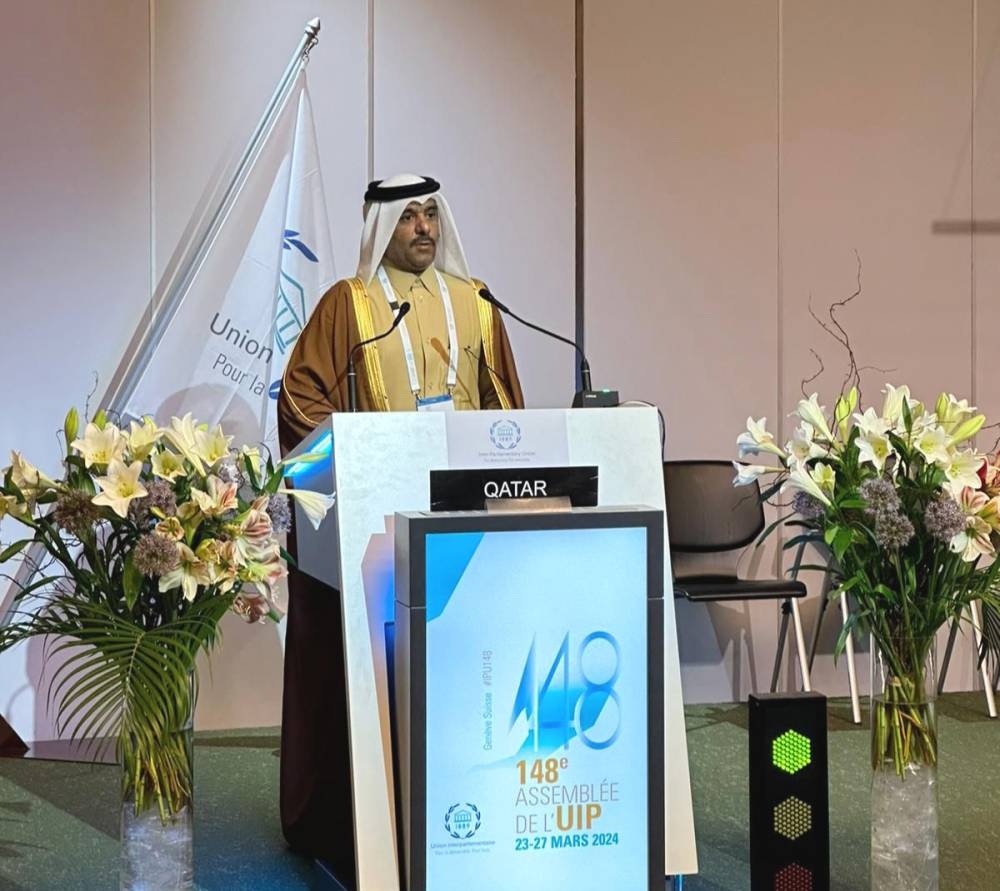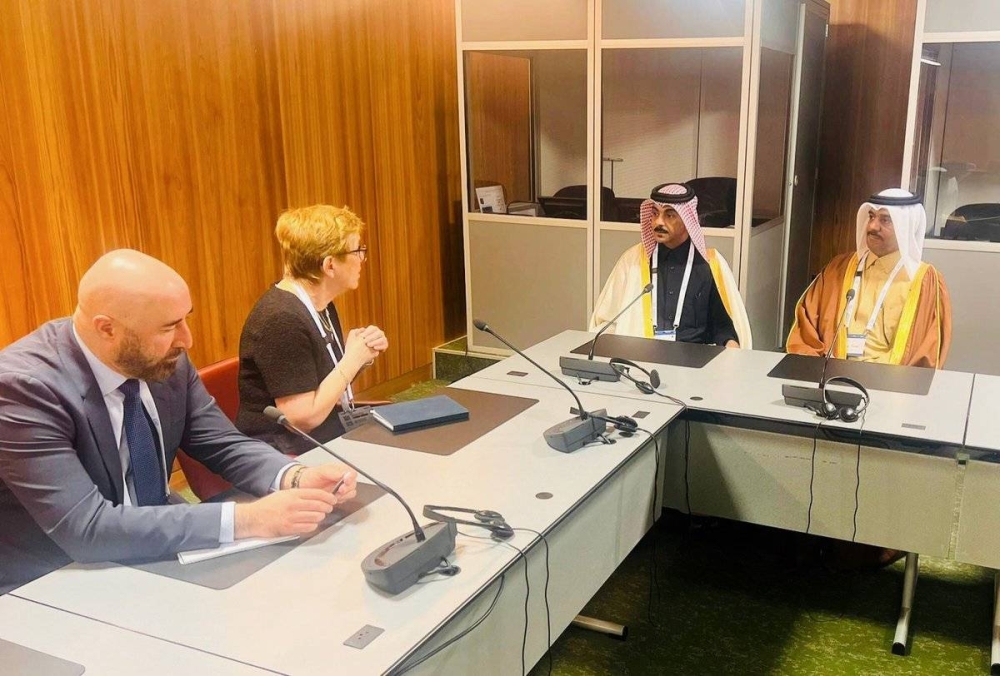The Shura Council highlighted the importance of the parliamentary role in achieving peace and stability, by strengthening the role of parliamentary diplomacy, making optimal use of legislative tools and building understanding and dialogue.
This came in a speech delivered by HE Shura Council member, Ali bin Ahmed al-Kaabi, before the 148th General Assembly of the Inter-Parliamentary Union (IPU) in Geneva, Switzerland, under the theme 'Parliamentary diplomacy: Building bridges for peace and understanding'.
Lawmakers have the tools for change through collaborating with governments and earmarking resources to stop wars and conflicts, HE al-Kaabi said, highlighting the importance of reforming the UN system and activating the role of its bodies to achieve justice and equality.
He pointed out the necessity of leveraging parliamentary diplomacy to ward off wars and conflicts, through mediation and good offices that lead to reconciliations and peace agreements, pointing in this context to Qatar's neutral and credible mediation efforts, which has gained it the confidence of the international community.
Speaking about the Shura Council's efforts to promote peace and stability, His Excellency highlighted the Council's endeavours to issue an international law criminalising hate speech, rejecting violence against minorities and contempt of religions and their adherents.
In a related context, he highlighted Qatar's hosting of the premises of the Global Organisation of Parliamentarians Against Corruption (GOPAC).
His Excellency pointed to the parliamentarians' capacities to address unconstitutional changes jeopardising sovereignty in democratic countries, ensure that governments implement international treaties and agreements to achieve sustainable development, international peace and security, and battle climate change and to take concrete steps to rein in carbon emissions to help address the climate crisis.
Commenting on the situation in the Gaza Strip, His Excellency expressed the Shura Council's condemnation of the Israeli occupation forces' brutal aggression and massacres against Palestinians. He also slammed the international community's inability to stop the machinery of killing and destruction, achieve security and peace, and punish those responsible for the genocide in Gaza and in the rest of the occupied Palestinian territories.
He urged parliamentarians and governments to do their part to stop these crimes and provide protection for the defenceless Palestinian people, lift the siege on them and enable them to enjoy their legitimate rights to life, independence and self-determination, in addition to their right to establish their independent state on the 1967 borders with East Jerusalem as its capital.
Meanwhile, the Shura Council delegation to the IPU Assembly held a meeting Monday with HE Third Deputy Speaker of the Swedish Parliament (Riksdag), Kerstin Lundgren, and several Riksdag members. Both sides discussed co-operation between the Shura Council and the Riksdag and ways to strengthen them.
The Shura Council, represented by the Council member Dr Sultan bin Hassan al-Dhabet al-Dosari, took part in the meeting of the IPU's Standing Committee on Democracy and Human Rights, held as part of the 148th IPU Assembly in Geneva.
The meeting discussed the impact of artificial intelligence (AI) on democracy, human rights, and the rule of law. The participants held a workshop on artificial intelligence and deliberated sustainable measures to develop the living conditions of people with disabilities, including their opportunities for education and work.
Addressing the meeting, HE al-Dosari stressed that the development of technology may enhance democracy by enabling popular participation and increasing transparency. Yet, he warned that the global AI development in particular raises mounting concerns and fears for national security, democracy and human rights.
His Excellency stressed the need to study the impact of AI technologies on these vital issues locally, regionally and globally, and to establish national foundations, frameworks and legislation to regulate the use of these technologies in a way that serves the individual and society.
In this regard, he highlighted Qatar's national strategy on AI, which is centred upon six pillars: education, access to data, employment, business, research and ethics. He added that Qatar had formed an AI committee within the Ministry of Communications and Information Technology to develop mechanisms for implementing this strategy.
Meanwhile, HE Shura Council Member Ahmed bin Ebrahim al-Malki participated in the meeting of the IPU's Standing Committee on UN Affairs. The attendees discussed efforts to ensure youth participation in the work of the UN. the sustainable UN humanitarian work, and a parliamentary proposal to reform the UN Security Council.


